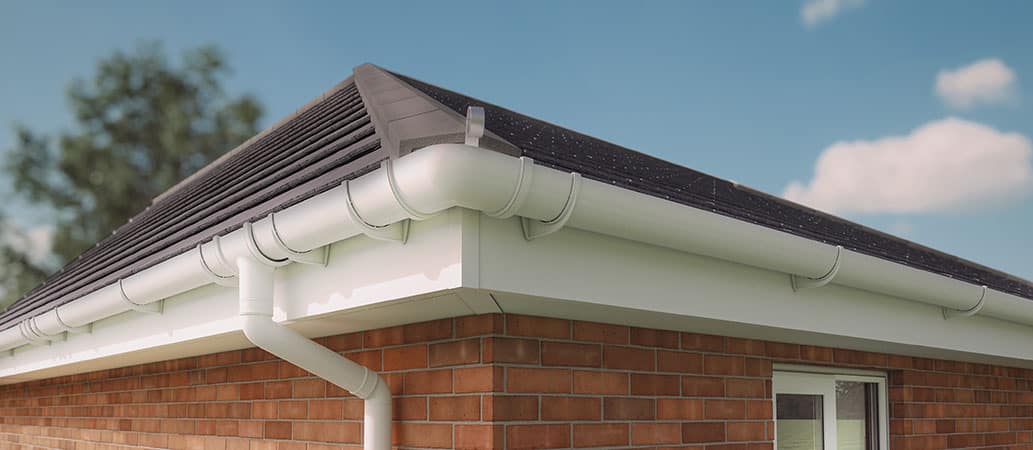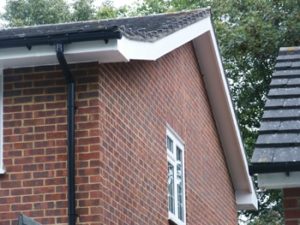Fascia And Soffit Installers Near Me Tools To Ease Your Everyday Lifet…
Lamont
0
3
2024.12.30 00:12
 Choosing uPVC fascia and soffit installers near me (sciencewiki.science)
Choosing uPVC fascia and soffit installers near me (sciencewiki.science)Fascias and soffits are largely unnoticed heroes that shield your home from the elements. They are susceptible to damage, however particularly in extreme weather conditions or if they are not maintained properly.
uPVC fascias and soffits are more durable than traditional timber boards and require minimal maintenance. They will look great after a quick clean-up and a visual inspection.
What type of material do you choose to use?
The type of fascia or the soffit boards you choose will impact the overall appearance as well as the longevity of your home. There are a variety of options to choose from including aluminum, wood, and composite materials. Each has its pros and cons. You should consider your own preferences and the climate you live in when choosing a material for your home.
Wood is a popular choice for fascia and soffit boards due to its low cost and can be painted to match the color of your house. However, it will deteriorate quickly and requires regular maintenance to avoid the spread of insects and rot. Composite or fiber cement fascia and soffit fitters near me boards are a great alternative if you're looking to find a more durable product. These are made of recycled woodchips and sawdust bonded together by epoxy resin. They are more expensive than wood, but they last longer and have superior rot resistance.
Vinyl fascia boards are another excellent alternative. They can be made to resemble any material. It is also simpler and faster to install than wooden fascia boards, and it is resistant to moisture and insect damage. It is important to keep in mind that vinyl can crack and peel as time passes. Consult a professional if you are unsure which material is the best for your home.
Depending on the size of your house depending on the size of your home, you may have to replace your entire roofline or you might be able repair specific areas. The first step is to determine the length of your roofline. This will help you determine how much fascia and soffit material you require. Once you've decided on the amount you'll need, the next step is to purchase the right material.
You can save cost on installation if are an experienced DIYer. However, this is risky as you'll need power tools atop an elevated ladder. You'll need a hammer, carpentry nails, along with a circular saw miter saw, miter saw, and protective gear. Be sure to follow the manufacturer's instructions and follow all safety precautions.
What kind of installation do you provide?
fascia board and soffit replacement near me and soffits are crucial elements of your roof that allow for airflow, weather protection and a polished look to the eaves. They also help protect against water damage and pest infestation, especially when the soffit is properly ventilated. It is a good idea to regularly check the condition of your soffit and maintenance in order to avoid rot or insect infestation and extend their life.
The soffit and the fascia and soffit fitters near me of your roof are essential when you're building or renovating a home. They protect the underside of your roof from moisture, water, and pests, as well as remove excess water from downspouts and gutters. Based on the materials used, they will last for a long time and provide a nice finish to your home's exterior.
There are several factors that determine the cost of a fascia and soffit installation will cost. The most important factor is the material used. Modern fascia boards are typically constructed of uPVC. It's a cost-effective option that doesn't warp and slide over time, and is also resistant to insects and rot. It's also easy to maintain and clean, making it an ideal option for all climates.
Other factors that may affect the price include the nature of the installation, labor costs, and the number of boards needed. The more boards you need the more expensive. If you're trying to repair an existing fascia, it is generally cheaper to repair damaged sections rather than replacing the entire board.
Fascia boards are priced by the linear foot, which means you'll need to determine how many feet of soffit and fascia you'll require. Then, divide the number by the price per foot of the material you're using. Add the cost of any additional materials you'll need to complete your project.
The most popular types of soffits are made from wood, vinyl, and aluminum. Wood is typically the least expensive choice, but it's prone to insect infestation or rot. Fiber cement and vinyl are more expensive but less prone to these issues. However, they are more difficult to install than wood.
What is the cost to do the job?
The soffit and fascia and soffit repair boards are a crucial element of the roofline that connects your home to the roof area and protects the lower row of tiles from the elements. It also provides ventilation, insulation and protects the downpipes and guttering by providing the barrier against moisture and condensation. New uPVC fascias provide a clean smart finish that will instantly improve the value of your home and save you money on maintenance costs.
There are a number of different colors to choose from and they can be tailored to match your existing windows and doors. It is also a robust material that does not require painting like wooden fascias. It will protect your home for a long time as it is able to stand up to heavy rain and snow without fading.
Wooden fascias can be damaged by the weather, and they are susceptible to mould and rot. They are also susceptible to water damage, which could result in the interior of your roof being exposed. This can also cause damage to the roof's structure.
uPVC is more durable to weather conditions and does not warp or rot like timber. uPVC is available in the exact lengths you need and is lightweight, so it is less time-consuming to install than wooden boards. This will cut down on costs and save you money on labour.
If the fascia is damaged or is rotting, it must be replaced as soon as possible since this can cause moisture to get into the roof space, putting your home vulnerable to damp and other issues. The moisture can build up in the rafters and the attic area of your home which can damage timbers, attract pesky creatures and create an unhealthy and dark environment.
uPVC is more resistant to moisture than timber and can be equipped with a vent system that allows air to flow through, preventing the attic from becoming too hot and causing condensation issues within your home. A space on the roof that has adequate ventilation can prevent the accumulation of moisture, which could cause mildew, mould, or wood decay.
How long will it last?
Typically, the whole roofline, including fascias, guttering and soffits can be replaced within two to three days. The size of your house and the material you select will determine the length of time it takes. The most popular choice for fascia boards and soffits is uPVC. It is highly resistant to rotting, warping and extreme weather conditions. This means that you'll save money on maintenance. It is available in a range of colours as well so you can pick the ideal colour to match your home.
The fascia board is an essential part of the roof's defences to stop moisture from entering the walls and into the loft area. It is also a support for the lower row roof tiles and allows them to breathe. This prevents condensation in your attic. It also helps support the gutters and downpipes. It may be worth replacing your fascia board if aren't sure if the structure is watertight. The first sign of this is cracked or flaking paint that is an obvious indication that it's not weatherproof and is allowing rainwater to enter your home. Other indicators include woody patches which suggest that the wood is decaying and allowing moisture, leading to damp problems.
The old fascia repair near me board will have to be removed, and rafters will be checked for damage from moisture. When the areas are dry, you can put in the new fascia. It is recommended to stagger fascia board joints, rather than fitting them in a straight line, because this will increase the strength of the boards and keep them from warping. To ensure an effective fix, a good quality uPVC roofing system will include Polytop stainless steel ring nails with rounded heads.
 After the fascia and soffit have been installed, it is crucial to install eaves trays. These trays are designed to catch rainwater and stop it from spilling over, causing damage to the roof space. It is also advisable to fit a vent in the soffit to stop the accumulation of moisture in the roof space and allow air to circulate to reduce condensation issues.
After the fascia and soffit have been installed, it is crucial to install eaves trays. These trays are designed to catch rainwater and stop it from spilling over, causing damage to the roof space. It is also advisable to fit a vent in the soffit to stop the accumulation of moisture in the roof space and allow air to circulate to reduce condensation issues. 